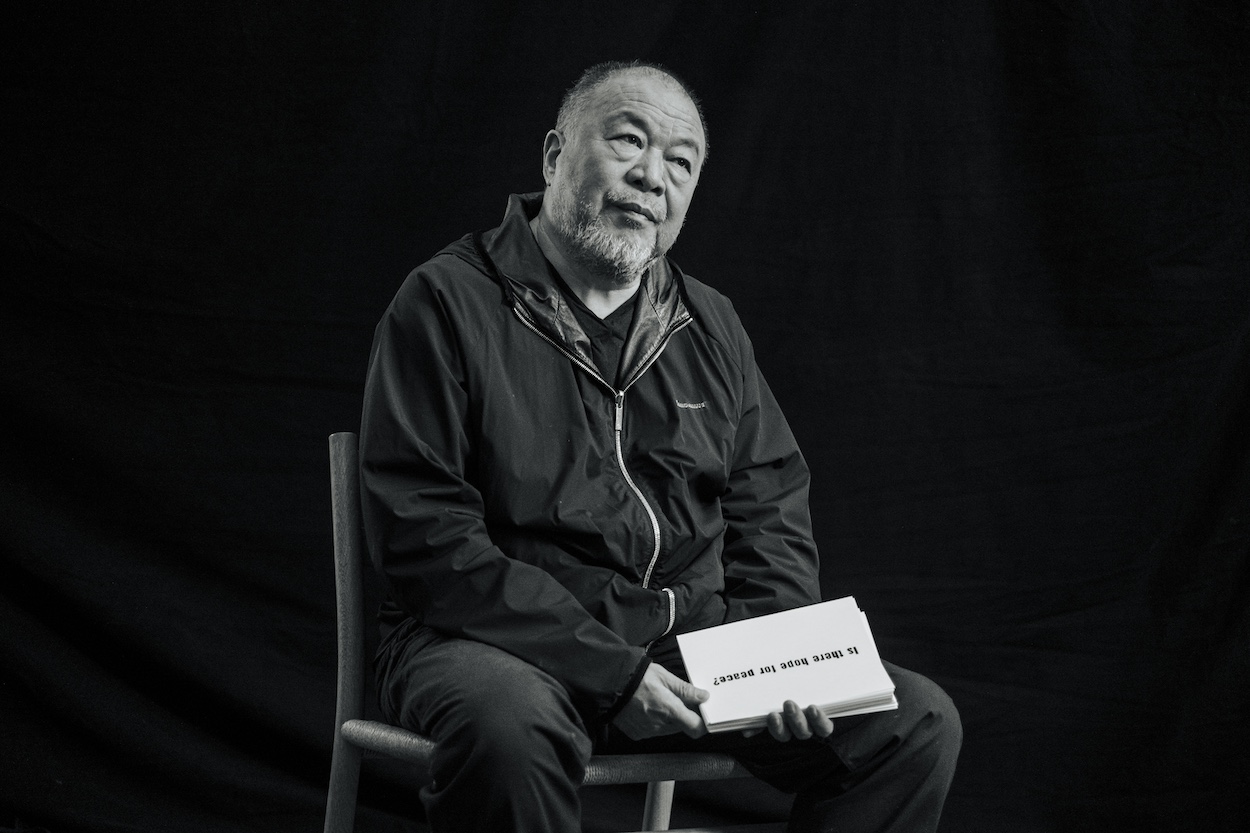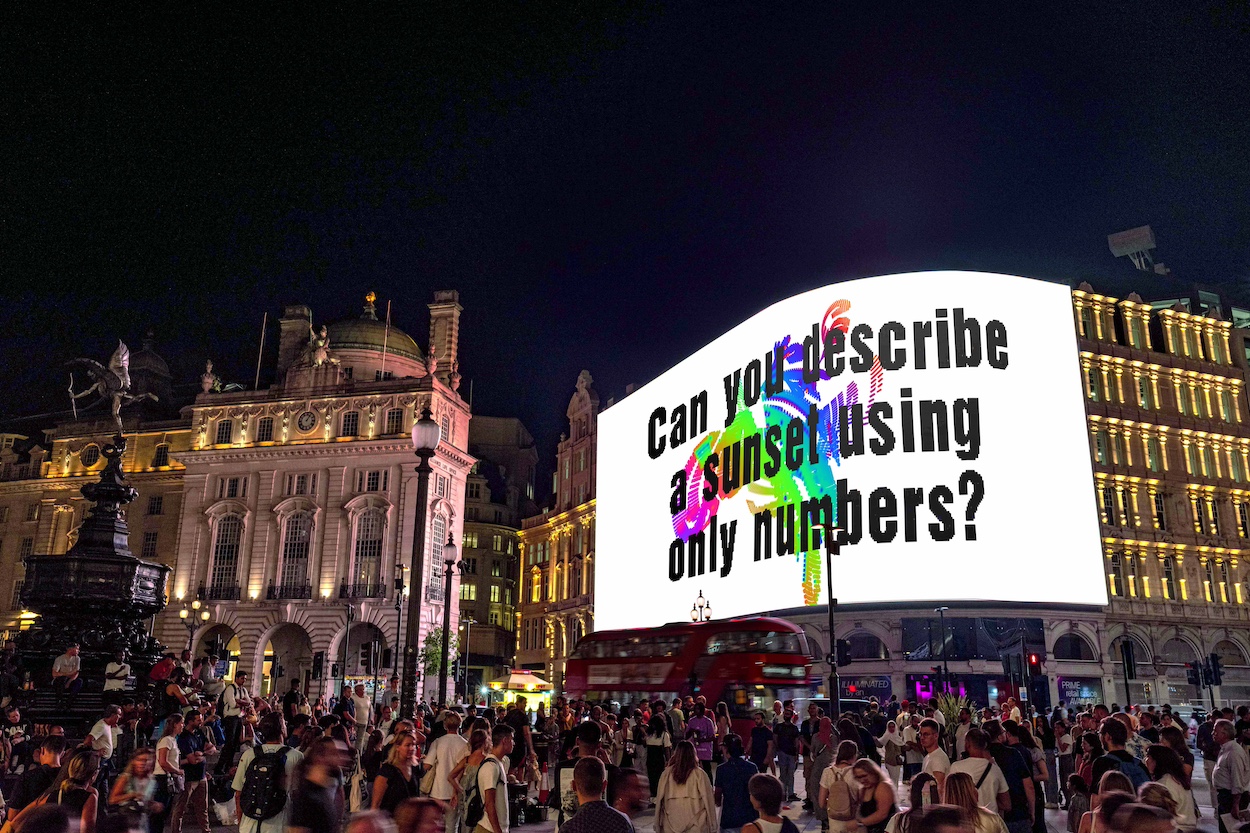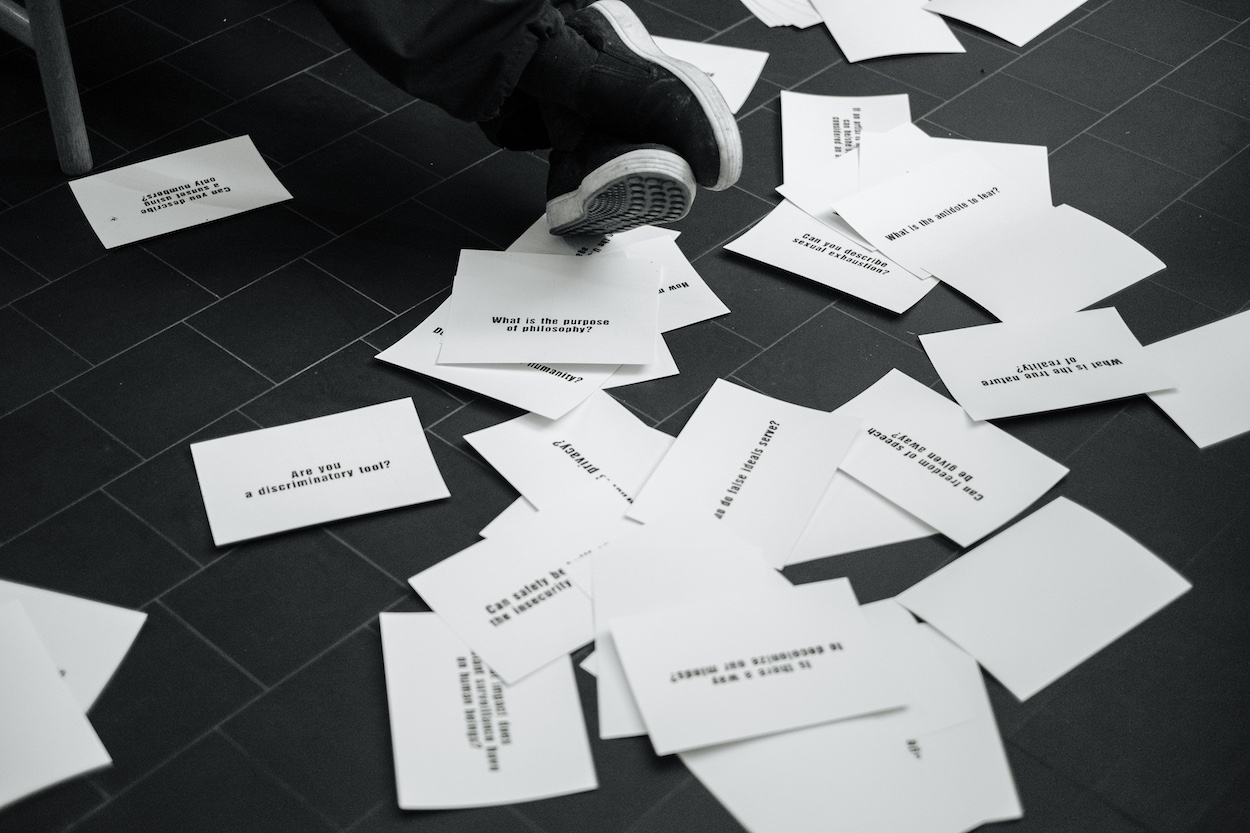AI has increasingly woven its way into our lives, whether penning sonnets in seconds on ChatGPT or using DALL-E to render off-kilter interiors that look straight out of Poor Things. As we start to understand large language models, though, we’re confronted with their limitations and murky ethics—ChatGPT tends to spit out the equivalent of a blurry .jpeg of the internet while image generators face intense scrutiny and class-action lawsuits from artists whose work they claim was unlawfully scraped to train the systems. Ai Weiwei, however, is using AI as a creative counterpart—and a vehicle to ponder life’s imponderable dilemmas. His latest project, titled Ai vs. AI, invites the public to take part.
Across a span of 81 days—the length of time Weiwei was detained in a Chinese prison in 2011—the dissident artist is posing 81 questions addressed to AI and the wider public on London’s Piccadilly Lights in collaboration with Circa. Each question carefully considers the role our minds and actions play in a spiraling world rife with geopolitical tension and information overload. Each query, ranging from philosophical provocations to humorous prods, will be answered by Ai and AI, and published online. Ultimately, the questions aim to make sense of our world and explore the centrality of humanity. Who profits when disinformation is sold? Is true democracy possible? Is Edward Snowden guilty? What are the limits of language? What are the benefits of farting?



